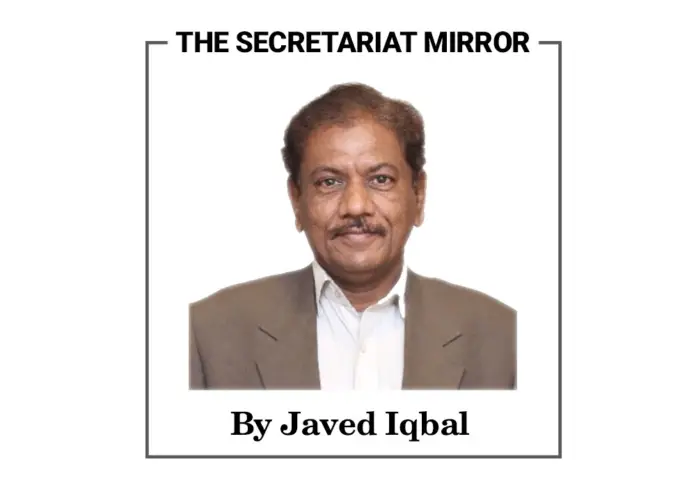Political unrest, an exorbitant spurt of prices, unchecked mafias, rising anti-regime public sentiments and, above all, a clash of institutions even after the change of guards, both in Islamabad and Lahore, have hijacked the set of principles, norms and national harmony.
Minute Mirror’s backchannel interviews of policymakers, academia, bureaucrats and critics have drawn a broken picture of the political and administrative affairs.
All those in and out of power corridors are poles apart – both politically and socially – because the ongoing narrative building, through attacks and counterattacks, is on the rise in public rallies. The institutions that symbolize guarding the borders have also been badly criticized. All this is not a good omen for national prestige.
Punjab Governor Umar Cheema’s announcement to send a reference against a high court judge has also intensified the atmosphere between the two constitutional pillars. All this, prima facie, goes against the set principle that no institution should interfere in the affairs of another one.
The judge had directed the National Assembly speaker to administer the oath to the newly elected Chief Minister of Punjab Hamza Shahbaz. Governor Cheema also termed the high court single bench order as illegal.
This time, however, the terrain of conflict among institutions is multidimensional. The honeycomb effect or in simple terms the social media users have further deepened and multiplied the crises. The policymakers and those at the helm of affairs should not ignore the emerging polarised situation and the dwindling role of state institutions.
It has been the bad luck of the province that witnessed maladministration. The outgoing Punjab chief minister Usman Buzdar was the worst example of it. He worked, as many alleged, only for his constituency and voters. The only job Buzdar did consistently was a reshuffling of officers while his cronies were vehemently criticized for minting money for postings and transfers through Farah Khan and company.
The same, as it seems, is true of the new provincial government. The newly-elected Chief Minister Hamza Shahbaz, after facing an oath crisis, has opted to transfer officers on a massive level. Initially, even before his oath as de facto chief minister, honest officers like Fayaz Ahmed Dev were surrendered from Punjab. Dev has the reputation to go by the book, not by whims. Many others, including those politically affiliated from across the country, have landed in Punjab. Meanwhile, services of senior member of Board of Revenue Babar Hayat Tarar, a grade 22 officer, are also being transferred to the federal government.
Lists of commissioners and secretaries to be transferred are being prepared. Those who worked with outgoing PTI may have to face the music, sources feared.
Critics say that the Pakistan Muslim League-Nawaz led government has started administration from the point it left in 2018. The outgoing PTI-led government had little experience managing things. The PML-N has vast experience to rule the largest province but after coming into power, it could not give its roadmap so far.
The transfers and postings of officers occupying top administrative positions in Gujrat, the hometown of Punjab Assembly Speaker Parvez Ilahi, reflects that there is no harmony to accommodate opponents. Both the deputy commissioner and the district police officer have been removed and junior officers have replaced them, in sheer violation of merit.
The escalating rates of essentials have also damaged the PML-N setups in Islamabad and Lahore, over exorbitant spurt of price heights. An increase in chicken meat price is indicative of inefficiency of the state machine to control artificial hike. The prime focus of the government, as it seems, is to control the anti-government sentiments and trends. All sectors have condemned the sad incident of chanting slogans outside the holy mosque in Medina but the government politicizing the issue may have severe consequences. Those who call it a premeditated conspiracy, just to counter what others call an international conspiracy, should never forget that the nation needs unity and brotherhood at this moment.
The government should rather focus on policymaking, service delivery, upcoming budget, formulation of the National Finance Commission (NFC) award, procurement of wheat and how to stop its smuggling. There is news that the due share of Punjab in irrigation water was given to Sindh province to please the political ally. The Punjab government should clarify it and substantiate it with data.
Issues like necrophilia have also emerged in the recent past. The need is to make proper arrangements to counter this societal crime through local bodies and institutions. Much delayed LB polls are the need of the country and a constitutional requirement.
The policymakers should focus on long term goals, instead of shorter political and economic gains. The state institutions should avoid fueling the religious sentiments for political mileage. It would further divide the polarised segments of society and give rise to mass unrest and law and order issues.
Pakistan, certainly, cannot afford an ‘Arab Spring’ when an enemy, the size of India, is at its doorstep. Beware. All the turns on the chess canvas must be well thought out.






